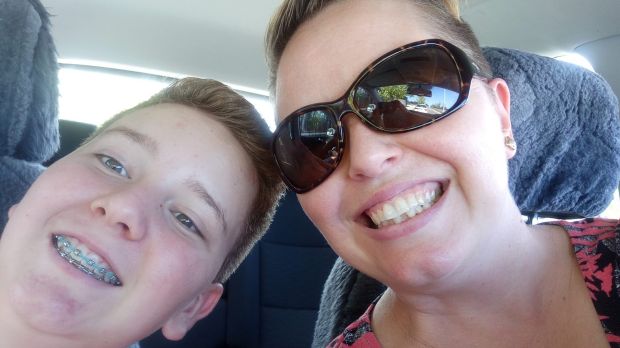
Gifting your child with a nest egg of investments is a wonderful idea, and will no doubt give them a kickstart into adulthood.
But some experts say we’re approaching this incorrectly; we should be investing with our children, rather than for them, to give them not just money but knowledge.
Orsolya Bartalis, 39, from Perth does just this with her oldest child, Jordan. “I take 35 per cent of my 15-year-old’s wage [from his part-time job], and we sit down and look at possible investments together,” she says.
“We look at what we’re getting, how secure it is, what the returns are and how long we have to invest the money for. He can then ask questions and we decide whether we invest or not; it’s often property investments.”
Investing in property is something that Cherie Barber, founder of Renovating For Profit is passionate about teaching young people. In her Young Renovators Scholarship Program, she teaches kids aged 12 to 18 about investing in and renovating homes.
“We’re seeing an increasing number of young people getting interested in property,” she says. “Children are watching renovating shows on TV, like The Living Room and The Block, and all these young people are getting inspired by and curious about property.”
Barber says her views on involving kids in the world of property can be controversial. “There are plenty of people saying that kids shouldn’t be into property; they should be out kicking a football or playing their (gaming device), but I don’t think that’s necessarily true. That’s up to each individual child.”
“Kids are thinking about the future, and the sooner that parents can start educating their children about what to buy, where to buy and how to identify really good capital growth suburbs, the better.”
Investing together: a parent’s responsibility
Make no mistake: financial literacy, from budgeting to investing, is the responsibility of parents.
“Kids receive [almost] no financial literacy in the education system, so that responsibility falls back on parents and the individual child to learn it of their own accord,” Barber says.
Dianne Charman from Jade Financial Group agrees. “We need to help our kids understand how to invest money so it will grow in the future; so they can take care of their future selves.”
Charman, who runs the Money Savvy Kids program, says that buying shares can be a positive way to start investing together as a family.
“Talk about what a share is, how it works, and which companies your kids want to invest in,” she suggests. “And get these conversations happening early, so that when they hit the early years of their working life they can get off on the right foot.”
But how early is too early? Charman says during primary school is a great time: “Our program works with kids from prep to grade six; we’re teaching kids what an investment is and how it’s different to saving.”
“Don’t underestimate how passionate kids are about learning this stuff. They might not get it straight away but, if you take small steps and plant some seeds, they’ll engage.”
With a future filled with housing affordability problems and self-funded retirement, there’s nothing more certain than the fact that the next generation need to learn how to be very smart with their money.
And, while it feels like a big step for our generation of parents, many of whom experienced money as a taboo topic, it’s worth forging the way for our children.
Bartalis says, “The main message I am working on instilling in my kids is to learn to be financially literate, so they can have a choice as to what they want to do in life.”